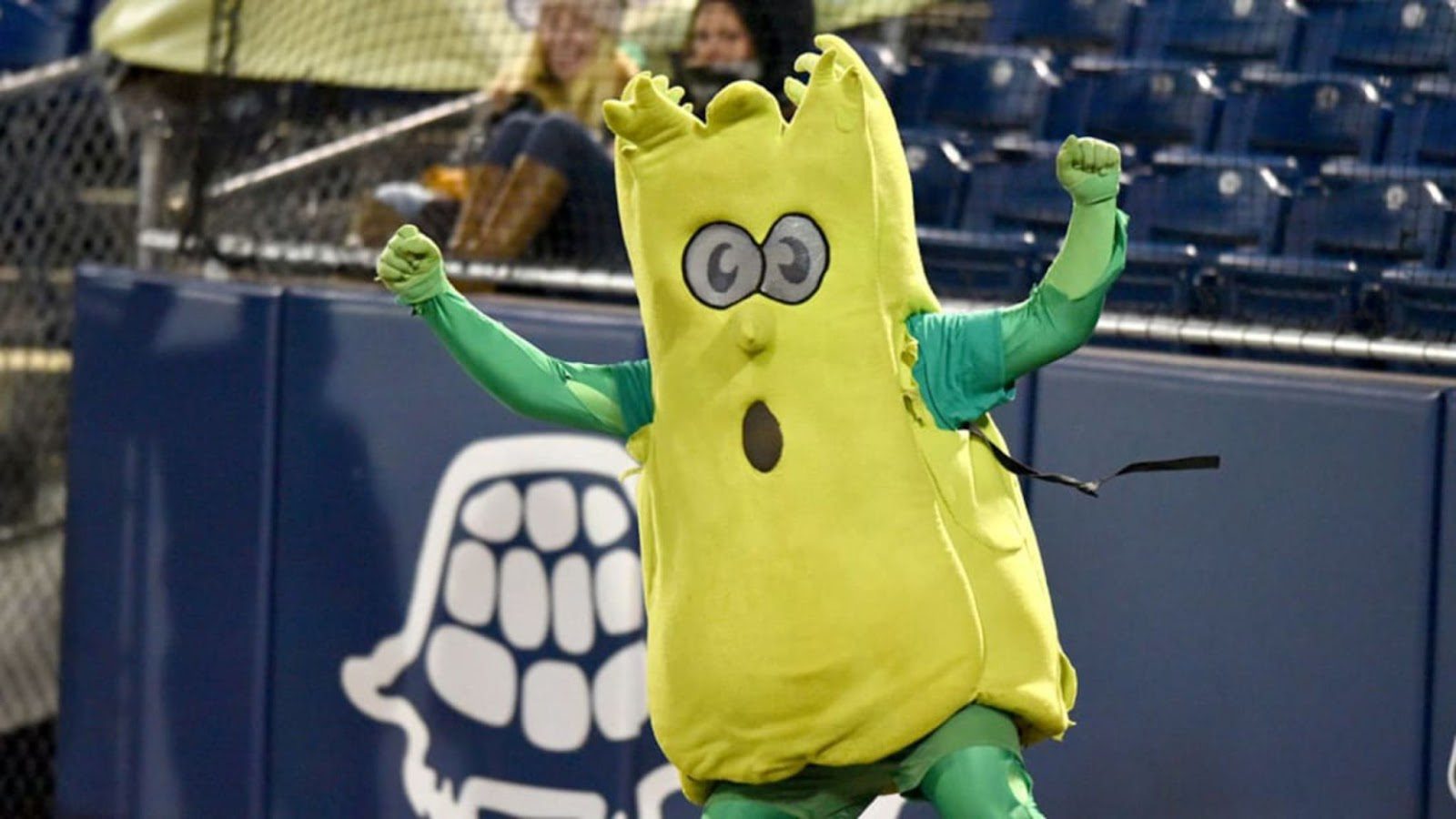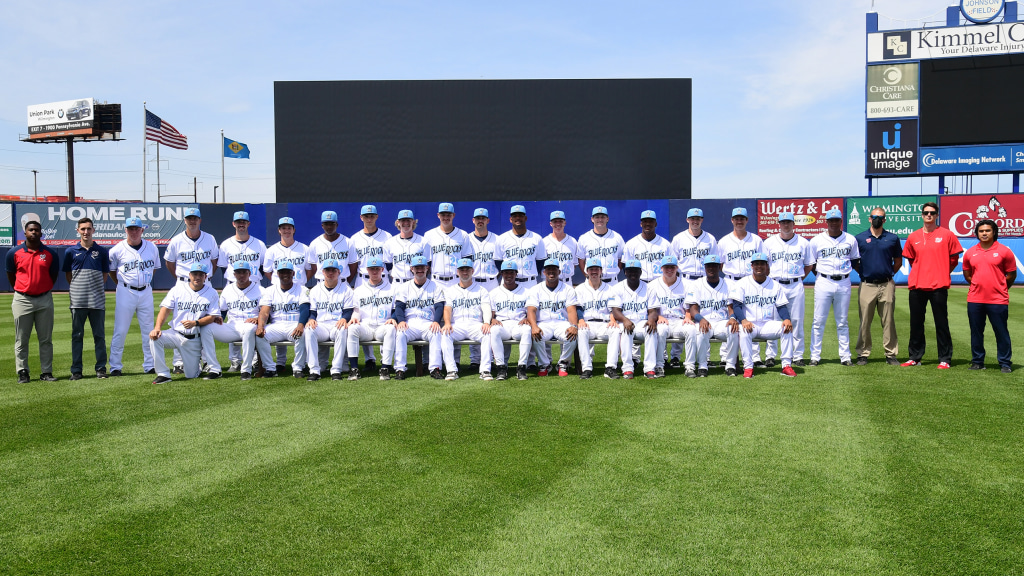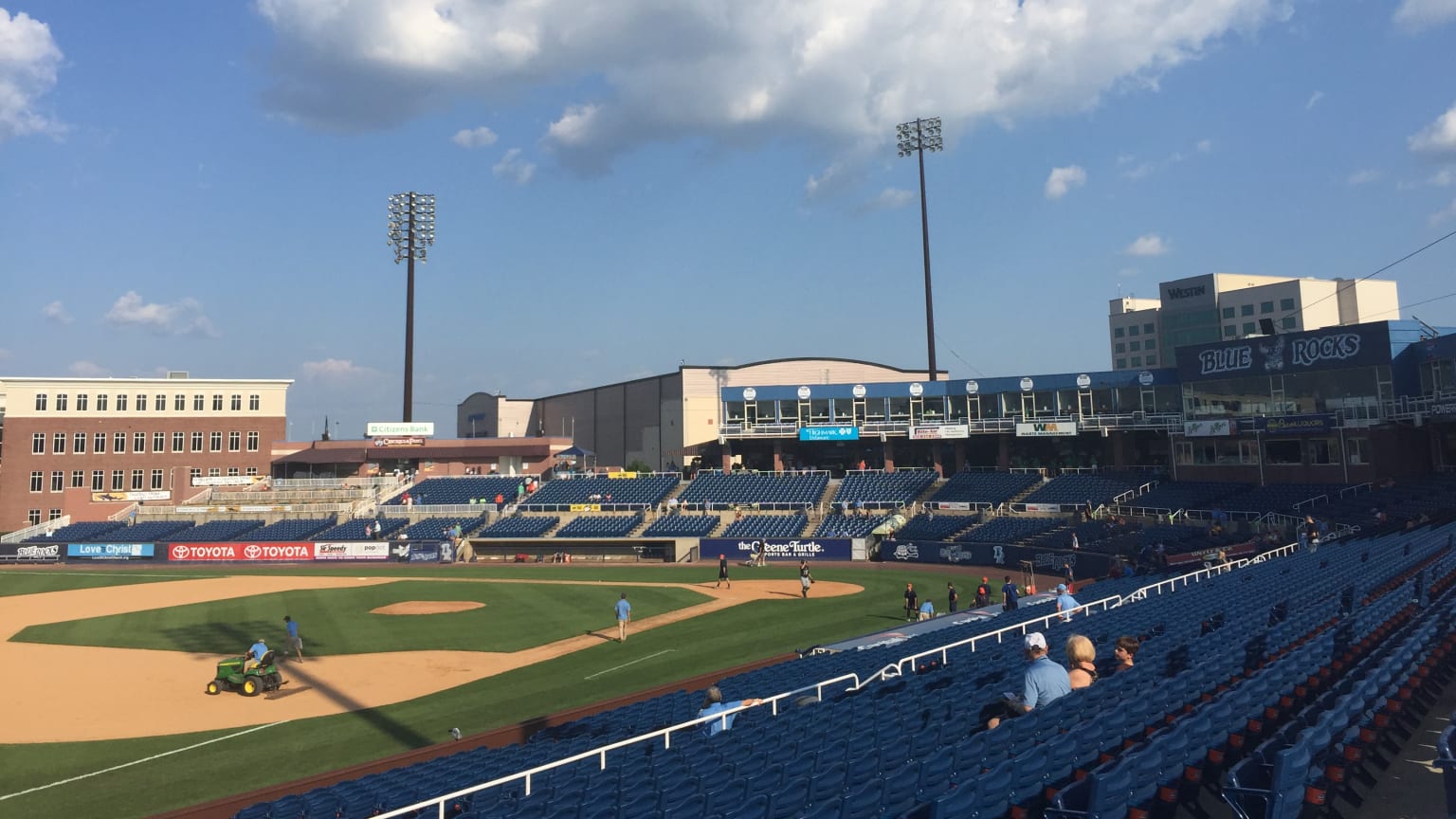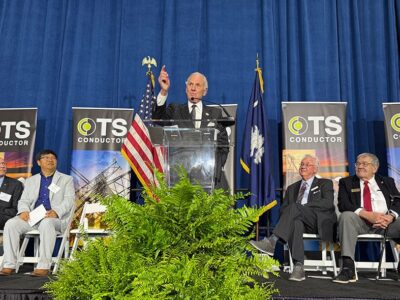Frawley Stadium, the home field of the Washington Nationals’ High-A affiliate Wilmington Blue Rocks, also is home to a couple of whimsical mascots. The team’s primary one is Rocky Bluewinkle, inspired by the classic cartoon. The other mascot, Mr. Celery, has more mysterious origins but has seen his popularity grow organically since he first appeared in Frawley Stadium over two decades ago.
Nowadays, images of the celery stalk are prevalent throughout the ballpark and on team merchandise. Mr. Celery, in his unique way, has promoted healthy eating because fans chant “We Want More Veggies” when he appears after the Blue Rocks score a run.

However, Mr. Celery isn’t the only green element of the Blue Rocks. The ballclub honored Earth Day with a “Going Green Night” as far back as 2009. It shouldn’t be a surprise that the team is concerned about the Earth since it inspired its name — specifically, Wilmington, DE’s famous blue granite.
More recently, the team has been contributing to a healthier planet by decreasing fungicides and pesticides and incorporating organic fertilizer to care for the stadium’s playing field.
“I hate fungicides,” explained Steve Gold, Blue Rocks director of field operations. “The really great part is that we’ve cut back our fungicide applications from 15 per year to two to three depending on weather conditions. To me, seeing such a huge decrease in fungicide use means results.” Wilmington has been acknowledged as an early adopter, along with the New Hampshire Fisher Cats, among minor league teams for switching to organic fertilizer.
In the early 2010s, the Blue Rocks began using an organic plant probiotic, developed by the Wilmington-based firm Holganix, that fortifies soil and helps plants grow deeper, thicker root systems. With stronger roots, plants become more resilient and lower the need for fungicide use. As a result, Gold can achieve his goal “to nurture a healthy plant, not create a fat one.”

The team’s efforts in cutting energy consumption are its other significant sustainable achievements. In 2011, Frawley Stadium underwent a major lighting renovation that replaced the old-fashioned T12 fluorescent bulbs and installed 250 Retrofit Kits, a highly regarded energy-efficient lighting solution. By lowering electrical usage, this lighting upgrade also decreased costs by more than 60%, with the ballclub predicting a return on its investment within a year. “We have been exploring ways to improve energy efficiency,” stated Andrew Layman, the Blue Rocks’ then-assistant general manager, and this lighting makeover “provided a great, cost-effective solution for us.”
In 2018, the Blue Rocks became the first team in its league to go with new LED field lights. The system’s control features improve the illumination of Frawley Stadium but also reduce the energy output by up to 50%.
“This is a win-win-win for everyone,” stated Dave Heller, Blue Rocks’ managing partner. “It’s good for the players, good for the community and our fans, good for the team, and good for the environment.”
This installation happened one year after the ballclub converted the stadium’s parking area to LED lighting and one year before the stadium got a new playing field in 2019. All this came after Baseball Digest fans voted it the best ballpark in the High-A leagues.

Frawley Stadium’s playing field is named for Hall of Famer and Negro League star Judy Johnson, the first Delawarean voted into Cooperstown. There is a lot of local pride and community involvement by the Blue Rocks, Delaware’s oldest pro sports team and sole minor league baseball club. When in the Carolina League, it won the league’s community service award five straight years during the 2010s. One popular program is Ks for Kids, which donates up to $5,000 per season for every home strikeout a Blue Rocks pitcher throws. In the 2022 season, the team partnered with Food Lion grocery stores to donate 500 meals to the Food Bank of Delaware every time they won a game. With 65 wins, it added up to 32,500 meals.





